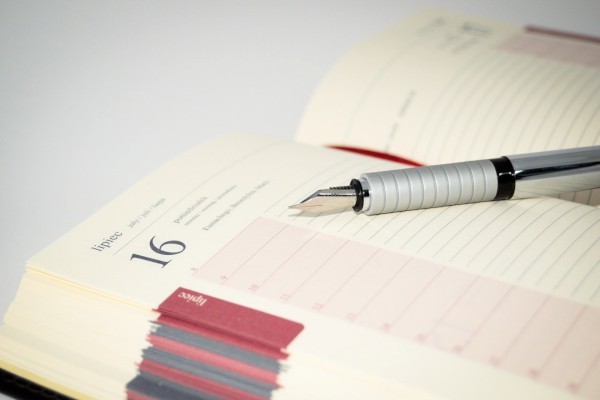小学语法知识点总结多篇范文
【导读】小学语法知识点总结多篇为好范文网的会员投稿推荐,但愿对你的学习工作带来帮助。

【第1篇】小学英语语法知识点总结:be动词的用法
be 动词的用法:
(1) am--was is --was are--were 口诀:我用am, 你用are, is用在他她它,复数全用are。
(2) 肯定和否定句 i am (not) from london. he is(not) a teacher. she is(not) in the dining room. my hair is(not) long. her eyes are(not) small.
(3) 一般疑问句 am i a chinese? yes, you are. no, you aren’t. are they american? yes, they are. no, they aren’t. is the cat fat? yes, it is. no, it isn’t.
there be 结构
肯定句: there is a …
there are …
一般疑问句:is there …? yes, there is./ no, there isn’t.
are there…? yes, there are. /no, there aren’t.
否定句: there isn’t …. there aren’t….
【第2篇】小学四年级下册英语语法知识点总结
一般过去时
1.一般过去时表示过去某个时间发生的动作或存在的状态,常和表示过去的时间状语连用。一般过去时也表示过去经常或反复发生的动作感谢。
2.be动词在一般过去时中的变化:
⑴am和is在一般过去时中变为was(was not=wasn’t)
⑵are在一般过去时中变为were(were not=weren’t)
⑶带有was或were的句子,其否定、疑问的变化和is, am, are一样,即否定句在was或were后加not,一般疑问句把was或were调到句首。
3.句中没有be动词的一般过去时的句子
否定句:didn’t +动词原形,如:jim didn’t go home yesterday.
一般疑问句:在句首加did,句子中的动词过去式变回原形。
如:did jim go home yesterday?
特殊疑问句:
⑴疑问词+did+主语+动词原形?
如:what did jim do yesterday?
⑵疑问词当主语时:疑问词+动词过去式?
如:who went to home yesterday?
【第3篇】小学英语语法知识点总结:数词
表示数目多少或顺序多少的词叫数词,数词分为基数词和序数词。表示数目多少的数词叫基数词;表示顺序的数词叫序数词。
一、基数词
1)基数词写法和读法: 325 three hundred and twenty-five;
2)基数词一般是单数形式,但下列情况,常用复数:
a. 与of 短语连用,表示概数,不能与具体数目连 用,如scores of people 指许多人;
b. 在一些表示“一排”或“一组”的词组里;
如:they arrived in twos and threes. 他们三三两两的到达了。
c. 表示“几十岁”;
d. 表示“年代”,用 in +the +数词复数;
e. 在乘法运算的一种表示法里,如:3 x 5 = 15 three fives is (are) fifteen.
二、序数词
序数词的缩写形式: first—1st second—2nd thirty-first—31st
三、数词的用法
1)倍数表示法
a. 主语+谓语+倍数(或分数)+ as + adj. + as
i have three times as many as you. 我有你三倍那么多。
b. 主语+谓语+倍数(分数)+ the size (amount,length…) of…
the earth is 49 times the size of the moon. 地球是月球的49倍。
c. 主语+谓语+倍数(分数)+ 形容词(副词)比较级+ than…
the grain output is 8 percent higher this year than that of last year.
今年比去年粮食产量增加8%。
d. 还可以用by+倍数,表示增加多少倍
the production of grain has been increased by four times this year.
今年粮食产量增加了4倍。
2)分数表示法
构成:基数词代表分子,序数词代表分母。分子大于1时,分子的序数词用单数,分母序数词用复数:
1/3 one-third ; 3/37 three thirty-sevenths.
【第4篇】小学英语语法知识点总结:情态动词
我们现在学过的情态动词有:can, could, will, would, may, must, should, shall。
情态动词后动词总是用原形。(不受其他任何条件影响)
特征
1)情态动词(modal verb)本身有词义,表示说话人的语气或情态,但词义不完全,不能单独用作谓语动词,一般只能和动词原形一起构成谓语动词。
2)情态动词所表示的情态有:命令、允诺、请求、拒绝、愿望、愿意、义务、必要、可能、能力、敢于、需要等。
3)情态动词(ought除外)和助动词shall,will,should,would一样,后面的动词不定式一般皆不带。
形式变化
1)没有人称和数的变化,第三人称单数的现在时也无变化。如:
i can we can
you can you can
he
they can
she can
it
2)有些情态动词有过去式,有少数过去式和它的原形相同。
a)有过去式的情态动词有:
may -- would
can ―― could
may―― night
shall -- should
have to -- had to
b)过去式不变的情态动词有:
must - must (或had to)
ought to - ought to
need---need
dare - dare(亦可用dared)
3)大多数情态动词后面可用动词的进行式、完成式和被动形式,如:can(may,must)be doing,can(may,must) have done,can(may,must)be done等。
否定式
情态动词和助动词一样,后面可直接跟否定词not。现将情态动词的否定式及其否定式的简略式(简略式用于口语中)列举如下:
shall not--shan‘t [fb:nt]
will not---won’t [weunt]
can not-can‘t [kb:nt]
must not-mustn’t [5mqsnt]
should not-- shouldn‘t
would not-- wouldn’t
could not-- couldn‘t
dare not- daren’t [dzent]
need not-- needn‘t
在疑问句中的用法
情态动词在疑问句中的用法和助动词相同。如:
may i ask you a question? 我可以问你一个问题吗?
can you let me use your dictionary for a minute? 你能把字典借我用一会儿吗?
would you like to visit the heavy machinery plant? 你想参观重型机器厂吗?
注意have to在疑问句中的位置。如:
do you have to go out today? 你今天一定得出去吗?
does he have to finish the work tomorrow? 他明天非做完这项工作不可吗?
【第5篇】小学四年级英语语法知识点总结
情态动词can
can 在英语中有一个特殊的名字,叫做情态动词,表示“能够”, “会”, “能力”后面要跟着表示动作的动词。没有时态和人称的变化。表示不能做什么的时候,后面加上 not为can not,或者缩写为can’t。问别人“能…吗?”要把can 放在句子前面,首字母要大写,句尾别忘加上问号。
人称代词所属格
注意:主格作主语,其中she指带代国家,it可指代天气时间等。
宾格作宾语,介词宾语,表语。动词后面用人称宾格
形容词性物主代词作定语。
名词性物主代词作主语,宾语,介词宾语,表语书信yours…
表示 ---- 的,这样的词我们也学习很多了,你能想出来吗?
记住这个小口诀就很容易了:我的 my ,你的your,他的 his、她的her. //它的是its; 我们的 our; 你们的是 your他们(它们,她们)的是their//这些人称代词形式称为人称代词所属格,也叫形容词性物主代词。通常用在名词前面表示所属关系。另外,表示某人的还可以用名词或人名+ ’s 来表示。如:
my kite;your book;his pen;her coat;its tail;our class;
their teachers;my brother’s;book;the cat’s ears;mary’s mother
你也可以在好范文网搜索更多本站小编为你整理的其他小学语法知识点总结多篇范文。
 该篇小学语法知识点总结多篇范文,全文共有3832个字。好范文网为全国范文类知名网站,下载全文稍作修改便可使用,即刻完成写稿任务。下载全文:
该篇小学语法知识点总结多篇范文,全文共有3832个字。好范文网为全国范文类知名网站,下载全文稍作修改便可使用,即刻完成写稿任务。下载全文: